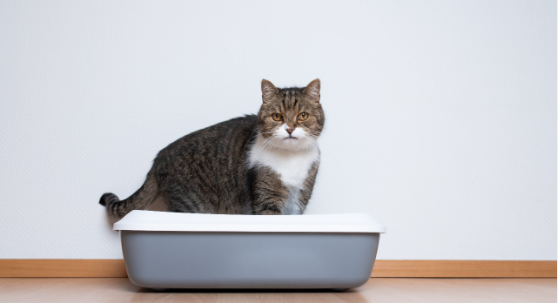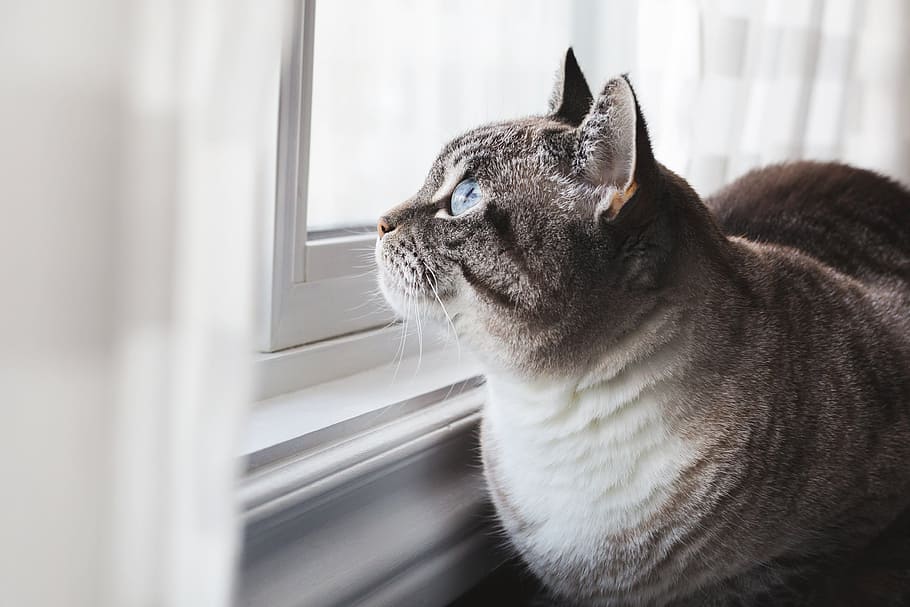How Long Can a Cat Travel Without a Litter Box?
The Importance of Litter Boxes for Cats
Litter boxes are an essential part of a cat’s life, as they provide a designated area for cats to relieve themselves. They are not only convenient for pet owners, but they also provide a sense of security and comfort for cats.
A litter box allows cats to follow their natural instincts to bury their waste and mark their territory. Additionally, litter boxes can help prevent health problems such as urinary tract infections by promoting proper elimination habits.
The Purpose of the Article
The purpose of this article is to address the question: How long can a cat travel without access to its litter box? This is an important question for pet owners who may need to travel with their cat or who have had unexpected circumstances arise that prevent access to the cat’s regular litter box. In this article, we will explore various factors that influence how long cats can go without using their litter boxes and discuss possible alternatives for when they don’t have access to them.
We will also examine the potential behavioural changes and health risks associated with not having access to a litter box. By understanding these factors, pet owners can ensure the well-being of their beloved feline companions even in unusual situations.
How long can a cat go without using a litter box?
Cats are known for being clean animals that have a strong instinct to bury their waste. As such, they usually seek out litter boxes or similar areas in which to do their business.
However, there may be times when cats do not have access to their usual litter boxes, such as when travelling or during emergencies. The question then arises: how long can a cat go without using a litter box?
Factors that affect how long a cat can go without using a litter box
There are several factors that can affect how long cats can go without using a litter box. The most significant of these include the age and health of the cat, its diet and hydration levels, and the size and breed of the cat. Age and Health: Older cats or those with health problems may not have control over their bladder or bowels for as long as healthy younger cats do.
Diet and Hydration levels: Cats on dry diets must drink more water than those on wet diets which makes them less tolerant of dehydration compared to their wet diet counterparts. Size and Breed: Larger breeds of cats may be able to hold it longer than smaller breeds due to having larger bladders. General guidelines for how long a cat can go without using a litter box:
It is generally recommended that cats should not go more than 24-48 hours without urinating. For bowel movements, it’s best if they don’t wait more than two days.
However, every animal is different so there could be exceptions. If you are unsure about your pet’s ability to hold its bladder or bowels for an extended period of time please contact your veterinarian before travelling with your pet!
What happens when a cat doesn’t have access to a litter box?
Cats are creatures of habit and routine, so removing their access to a litter box can have significant consequences. Without the ability to use a litter box, cats will often experience increased stress and anxiety levels. They may become agitated and distressed, which can lead to behavioral changes such as excessive meowing or hiding away from their owners.
Cats rely on consistency in their daily routines, which includes having access to their designated elimination area. When that routine is disrupted, it can cause confusion and anxiety.
Additionally, cats may begin to develop changes in eating and sleeping patterns when they don’t have access to their litter boxes. The discomfort caused by not being able to eliminate waste in a timely manner can disrupt their natural cycles.
This disruption can lead them to be unable or unwilling to eat or sleep properly, causing further health issues down the line. The increased stress levels combined with disrupted routines could also increase the likelihood of accidents happening around the house, leading to messes that owners may not be able to manage easily.
Health risks associated with not having access to a litter box
Not having access to a litter box can also pose potential health risks for cats that go beyond behavioural changes. Cats who are unable or unwilling to use an alternative elimination area may develop urinary tract infections as well as kidney problems due to holding urine for extended periods of time.
These conditions require immediate medical attention and can be costly for pet owners. In addition, not being able to access proper hydration through clean water can lead cats toward dehydration which is particularly dangerous for older cats who may already have health issues related to age.
Elderly feline pets especially those suffering from renal failure problems could rapidly deteriorate if deprived of adequate water intake that’s needed in order for them to remain healthy. It’s important for cat owners who plan on traveling without access to a litter box to take the necessary precautions and provide alternative options to ensure their pet’s comfort and health.
Litter Box Alternatives
Travel Litter Box
When travelling with your cat, it is important to provide them with access to a litter box. A travel litter box is a great option for cat owners who are constantly on the go. These litter boxes are small, compact, and easy to transport.
They come in various sizes and shapes, so you can choose one that fits your cat’s size and needs. Travel litter boxes are typically made of lightweight materials such as plastic or fabric and can be set up in seconds.
Puppy Pads
Puppy pads are absorbent pads that are commonly used for housebreaking puppies. However, they can also be used as an alternative for cats who do not have access to their regular litter boxes.
These pads contain absorbent materials that quickly soak up urine, reducing the risk of accidents around the house. Simply place the puppy pad in a designated area and encourage your cat to use it instead of their regular litter box.
Newspapers
Newspapers can also be used as an alternative for cats who do not have access to their regular litter boxes. Simply place multiple layers of newspaper in a designated area and encourage your cat to use it instead of their regular litter box. It is important to note that newspapers should only be used temporarily as they do not contain any absorbent materials and can create a mess.
Cardboard Boxes
Cardboard boxes can be used as an alternative for cats who do not have access to their regular litter boxes. Simply line the cardboard box with plastic or puppy pads and encourage your cat to use it instead of their regular litter box. However, it is important to note that cardboard boxes should only be used temporarily as they can easily become soiled.
Soil or Sand
Soil or sand can be used as an alternative for cats who do not have access to their regular litter boxes. These materials simulate the texture and feel of cat litter, making it easier for your cat to transition.
Simply fill a designated area with soil or sand and encourage your cat to use it instead of their regular litter box. However, it is important to note that soil or sand should only be used temporarily as they can create a mess and are not sustainable.
Conclusion
Providing alternatives for cats when they don’t have access to their regular litter boxes is important for maintaining their health and happiness. When travelling with your cat, a travel litter box is a great option.
Puppy pads, newspapers, cardboard boxes, soil, or sand are great alternatives in a pinch but should only be used temporarily. It’s also important to remember that while these alternatives may work in the short term, they do not replace the importance of having a regular clean litter box for your feline friend’s well-being.



